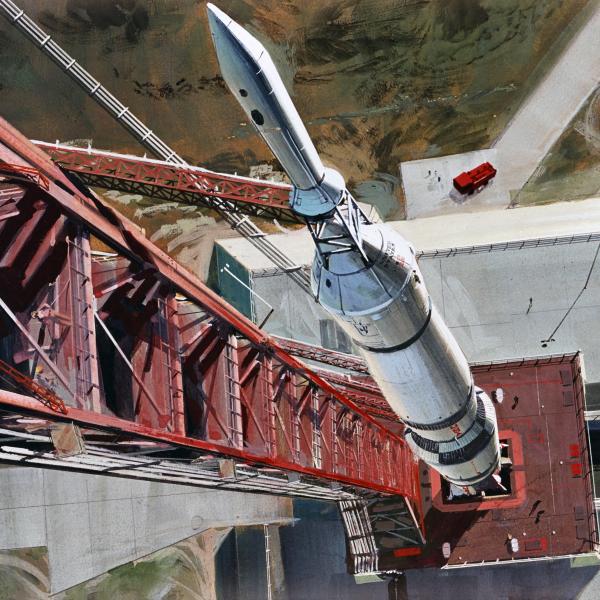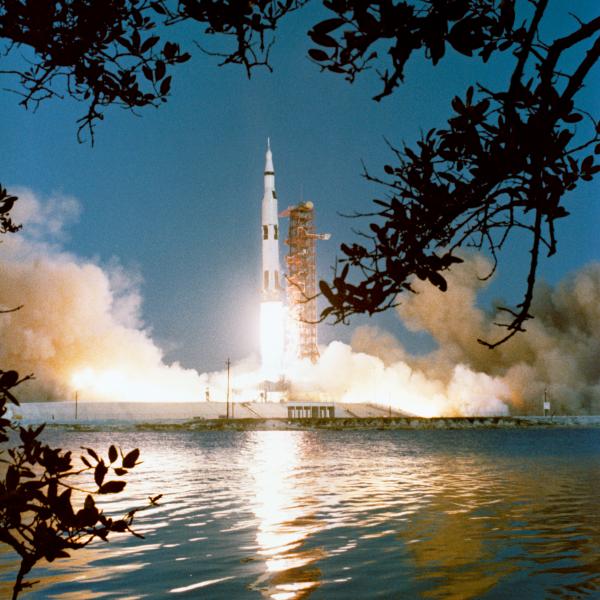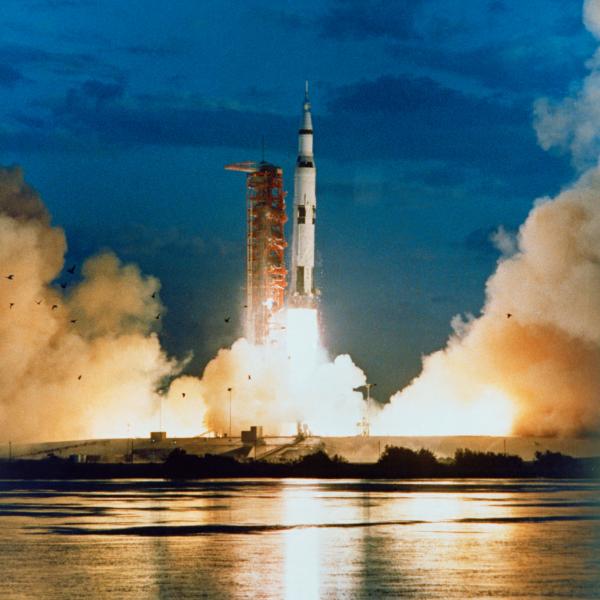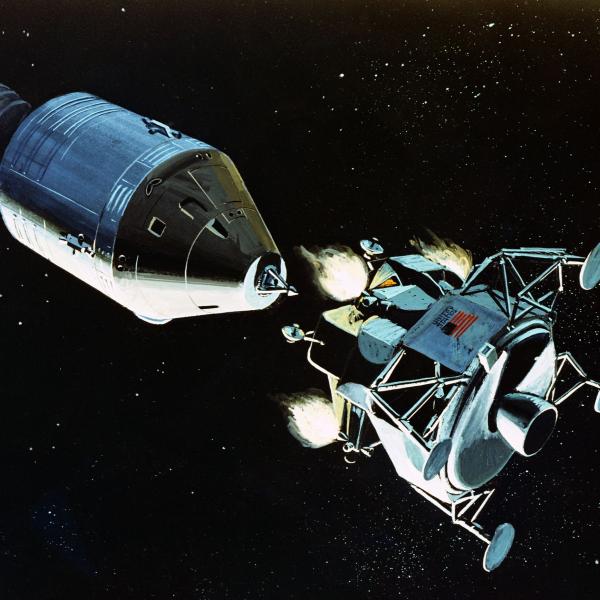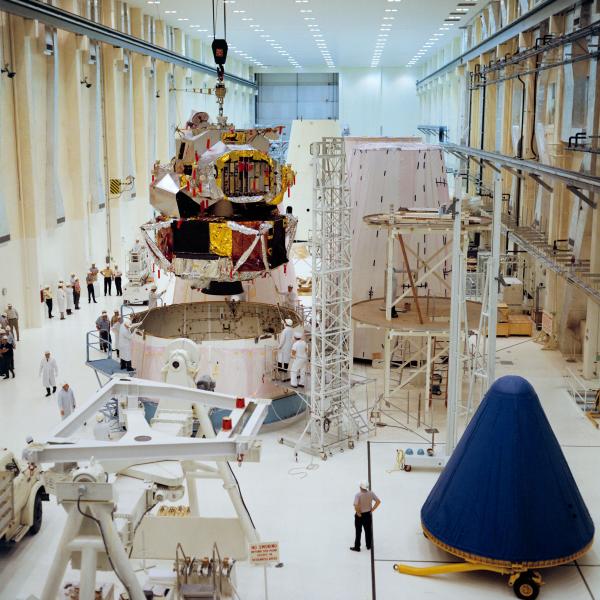
Wernher Von Braun
Rocket scientist Wernher von Braun [pronounced Vairn-er fon Brown] is hailed as the Founder of American Rocketry and the designer of the Saturn V launch vehicles. Prior to working at the Army Ballistic Missile Agency (ABMA) and NASA’s Marshall Space Flight Center (MSFC), von Braun was a German citizen, clandestinely transferred to the United States under Operation Overcast (precursor to Project Paperclip). During World War II, von Braun worked in Nazi Germany's rocket development program and was a major in the Nazi Allgemeine SS, stationed at Peenemünde Army Research Center. He and his team developed the V-1 “buzz bomb” and the V-2, the world’s first long-range guided ballistic missile. The weapons were constructed by slave labor in the underground factories at Mittelbau-Dora concentration camp.
After the fall of Nazi Germany in WWII, Von Braun and several of his colleagues were recruited by the United States government to help the U.S. expand their technology rather than have these experts fall into the hands of the Soviet Union. Von Braun advanced the technical achievements developed at Peenemünde in his creation of the Redstone rocket family. While with ABMA, von Braun was responsible for modifying a Jupiter booster to help launch Explorer 1, the United States’ first satellite in January 1958. With the creation of NASA on October 1, 1958, von Braun and his ABMA team were incorporated into the new space agency, where they went on to develop the Redstone-Mercury and Saturn V launch vehicles. The Saturn V was used exclusively during the Apollo missions, and was successfully launched 13 times from the Kennedy Space Center, without any loss of payload or crew. To this day, it remains the world’s only launch vehicle to carry humans outside of low-Earth orbit.
After the cancellation of Apollo, von Braun transferred to the private sector. He worked as the Vice President for Engineering and Development at Fairchild Industries from 1972 until his declining health forced him to retire in 1976. Von Braun was the recipient of numerous awards, including the NASA Distinguished Service Medal and the National Medal of Science. Von Braun died of pancreatic cancer at age 67 in 1977.
